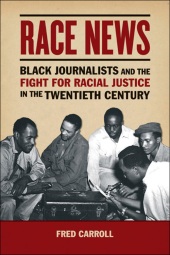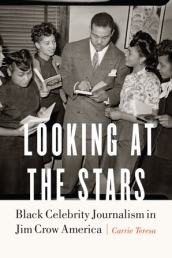
Each month, Clio will highlight the latest episode of the Journalism History podcast and recommend a set of episodes from the archives. The podcasts — available on the website and through many podcast players — are excellent teaching tools, easy to add to your syllabi. Transcripts of each episode are available online.
In the latest episode, researcher Sheryl Kennedy Haydel explains how the journalists of the student-run Bennett Banner used their paper to rally their peers at Bennett College, a historically Black college for women, from the 1930s through the ’50s.
This month’s focus is on Black history, with episodes that span the 19th and 20th centuries and cover journalism and public relations topics.
Episode 93: Journalism and Jim Crow Historian Kathy Roberts Forde discusses her co-edited book, Journalism and Jim Crow: White Supremacy and the Black Struggle for a New America. The book examines the role that journalism played in creating and maintaining Jim Crow oppression that included support for lynching, segregation, forced labor, voter suppression, and a racist criminal justice system.

Episode 72: The Black Press and the Fight for Racial Justice Historian Fred Carroll talks about the evolution of African American newspapers after the commercial and alternative Black press began to cross over in the 1920s. He argues the Black press played two important roles: It presented Black life as it’s lived, and, at the same time, protested racial wrongs.

Episode 30: Black Celebrity Journalism Historian Carrie Teresa explores the meaning of celebrity as expressed by Black journalists writing against the backdrop of Jim Crow era segregation. She covers the topic of Black celebrity journalism in greater detail in her book, Looking at the Stars: Black Celebrity Journalism in Jim Crow America.
Episode 21: Hidden Figures in PR History Public relations professor Denise Hill discusses the African-American public relations practitioners long overshadowed by their white counterparts in history books. Hill explores the PR strategies of Ida B. Wells’ anti-lynching campaign, and also highlights the work of several PR pioneers. These include the stories of Henry Lee Moon, director of public relations for the NAACP; Moss Kendrix, a public relations specialist who helped convince companies to stop using advertising stereotypes such as Aunt Jemima; and Inez Kaiser, who started the first African-American female-owned public relations firm in the country.
